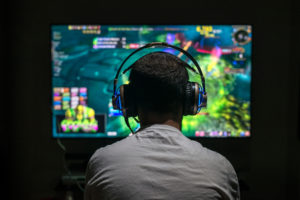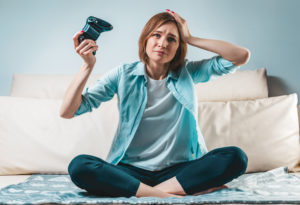
Play to win: Don’t get caught with dodgy video games this Christmas
It's no secret that video games are big business. In fact, the gaming industry is now worth more than $200 billion globally and is expected to reach almost $300 billion by 2024. In Australia, the gaming industry is also huge and growing.
According to the Department of Foreign Affairs and Trade, the sector contributed $226.5 million in revenue in 2021, a 22 percent increase from 2020. This is thanks to the $3.6 billion Australians spent on video games.
Australian-made games are also having an impact, with developers using the country's natural beauty, stories and culture as inspiration for their creations.
With that kind of money on the line, one would think gamers are given a premium experience. Unfortunately, that isn’t always the case. Sometimes games don’t meet our expectations. And game developers and publishers can be a little shady when it comes to refunds.
And with Christmas around the corner, many of us are considering buying video games for family and friends as gifts. If the game doesn’t live up to expectations, we need to know what recourse we have, if any.
Common gaming issues
People may encounter a variety of problems with their gaming experiences, ranging from technical issues such as lagging or freezing to unforeseen glitches. Some players might even find that the game they bought doesn’t match the description provided or is missing content.

Games that can cause technical issues or other problems include online games with servers hosted by third-party companies, games that require a large amount of data to download or update and VR (virtual reality) games. A recent example of this is Pokémon’s Scarlet and Violet, which had many players complaining they weren’t working properly. Lifehacker described the games as “arguably unfinished”.
However, Nintendo has been less than forthcoming and players have had difficulty getting their money back. Some gamers in the US have been able to obtain refunds. But those in other locations have not had any success.
Is it the game, console, internet or user error?
It can also be difficult to tell if an issue is due to the game, the console, the internet connection or user error. If you’re having trouble playing a game, it’s a good idea to try to troubleshoot the problem first. This can involve restarting your console or computer, checking your internet connection, updating the game and making sure you have the correct settings.
If you’ve done all of this and the issue still persists, it could be the game itself. Look up reviews or comments from other players who have experienced similar problems and see if they’ve found a solution. There are several forums dedicated to gaming that provide advice and warnings about games. These forums can be a great resource for players to get an idea of what other people think of a game. And identify any potential problems before they buy it. Popular gaming forums include Reddit, Giant Bomb and GameFAQs.
You can also reach out to the game developer or publisher and explain the problem you're having. However, if you're aiming for a refund, be warned that the process can be slow and frustrating.
The battle against Valve and Sony
In 2017, the Australian Competition and Consumer Commission (ACCC) stepped in to help Steam gamers when they ran into problems with their purchases. Valve, the platform developer, claimed that it was up to players to read the terms and conditions before making a purchase and that refunds were not given on digital products.
The ACCC disagreed and argued that Valve was not providing consumers with clear and accurate information about their rights when it came to the refund process. According to Australian Consumer Law, consumers are entitled to a refund if the product is not of acceptable quality. This includes games with content that are broken or missing updates, as well as major bugs that prevent the game from being played.
The ACCC took Valve to the Federal Court, where it was ordered to pay a $3 million fine, implement a new refund system and provide more information on its refund policy.
In 2020, Sony and its PlayStation suffered a similar fate when it announced that the funds in the gamers' PlayStation Network (PSN) Wallet are non-refundable. PSN also did not have "guarantees as to the quality, functionality, completeness, or performance of the digital games they purchased”. Consequently, the ACCC took Sony to court and won, with the company required to pay a $3.5 million penalty.
The refund policies for major video game companies
Through the ACCC's efforts, most major game companies now have refund policies in place.
Steam
Steam's official policy says it offers refunds in some cases.
Downloadable content
In order to be eligible, you must request a refund within 14 days of purchase and have played the game for less than two hours. It also states, "even if you fall outside of the refund rules we’ve described, you can ask for a refund anyway and we’ll take a look”. Note that if you purchased from non-Valve websites, then they can't issue a refund. But these third-party stores should have their own refund policies.
In-game purchases

You can get a refund for in-game purchases within any Valve-developed game within 48 hours of purchase, as long as the in-game item hasn't been consumed, modified or transferred.
Pre-orders
You can get a refund for any game you pre-purchase on Steam, as long as it's before the release date. The same 14-day/two-hour refund policy applies starting from when the game comes out.
Subscriptions
If you have not used your renewable subscription during the current billing cycle, you may request a refund within 48 hours of either the initial purchase or any automatic renewal. Your content is considered used if you've played games included in the subscription during the billing cycle, used benefits or discounts included with said subscription, consumed them, modified them, or transferred them in any way.
PlayStation
Sony offers a 14-day refund policy for digital purchases. In order to be eligible, you must meet the following:
Downloadable content and in-game purchases
Request a refund within that period and have not started downloading or streaming the game. However, if the game is faulty, you can request a refund even after the 14-day period has passed.
Pre-orders
If your order is made more than 14 days before the release date, you may cancel and get a refund any time before the content is released. Otherwise, you have to make the request within 14 days from your date of purchase.
Subscriptions
If you cancel your PlayStation Store subscription within 14 days of purchase, you will get a refund but the amount refunded may be less than the full amount based on how much you have used the service.
Xbox
Microsoft also offers a 14-day refund policy for digital purchases, if you
-
- Make a request within 14 days from the date of purchase, and
- “Haven’t accumulated a significant amount of play time"
It's not clear what "significant amount" means. But generally, if you haven't played the game for a few hours, you should be able to get a refund. Note that Microsoft may also offer a refund if the game is faulty.
Nintendo
Nintendo offers refunds but the policy is rather vague. It states that "Although Nintendo Australia does not provide a Manufacturer’s Warranty for software, the consumer guarantees described on this page apply”. That is, if the game does not work, you can ask for a refund in accordance with Australian Consumer Law.
It’s important to remember that refunds are not guaranteed, even if you meet all of these criteria. Each gaming company will consider each case individually. But there are ways you can increase the chances of getting your money back.
How to get a refund for video games
The best tip to ensure you can get a refund is to do your research! Make sure that the game you’re buying has good reviews. And that its description matches what you’re looking for in a game before you commit to the purchase.
It's also important to read through the terms and conditions of the gaming company you are buying from so that you understand your rights when it comes to refunds. Make sure you know what their refund policy is and how long it applies for (usually 14 days).
Finally, if you’re buying a digital game, avoid starting the download or streaming process until you're sure that you want to keep it. Change of mind is not usually going to be a valid reason for a refund, so make sure you're confident in your purchase.
If you’re unhappy with the game and think you may be eligible for a refund, contact the gaming company directly either through email or phone to explain your issue. Explain why the game isn’t right for you and be polite. Companies are much more likely to approve a refund if the customer is pleasant and understanding.
Help for getting a refund on a gaming product
If you’ve had difficulty getting a refund on a gaming product, the first step is to contact the gaming company directly and explain your situation. Be polite but firm - remember that you have rights as a consumer under Australian Consumer Law.
In addition, if you feel like your case hasn’t been adequately heard then it can be worth contacting your local consumer protection agency for further advice. The ACCC provides information on how to make a complaint about a gaming product and can give you advice on getting a refund.

If you’ve bought a game from an overseas retailer, it may be difficult to get a refund as the Australian Consumer Law doesn’t always apply. However, you still have rights under the laws of the country where your purchase was made. Do some research on what those rights are before buying a game. So you can be sure of your eligibility for a refund should something go wrong. Additionally, some gaming companies may offer their own international refund policies that can be applied to purchases from overseas retailers.
Finally, there are often online forums or websites (mentioned above) that provide assistance with gaming issues such as refunds. These can be a good place to start if you’re not sure where to turn.
Don't be played!
At the end of the day, it’s important to remember that you have rights as a consumer. So don’t be afraid to stand up for them when it comes to getting a refund on your gaming purchase. With the right information and a bit of research, you can make sure your gaming experience is a positive one this Christmas. And, as always, if you have a problem getting a rightful refund for your gaming purchase, get in touch and we’ll help you handle it.






